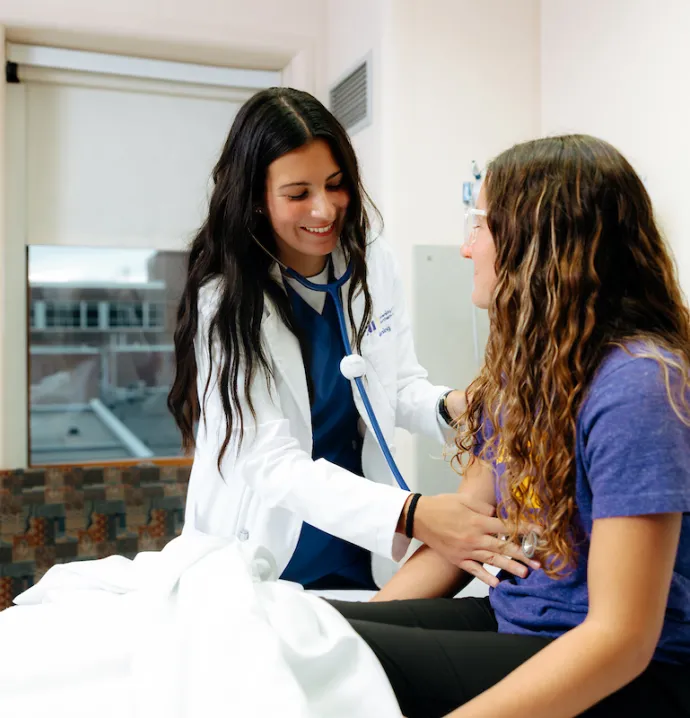UNI researchers point to global COVID-19 lessons in the Arctic
UNI researchers point to global COVID-19 lessons in the Arctic
In a study published this week in the prestigious journal Nature Medicine, University of Northern Iowa researchers examine COVID-19’s impact on Indigenous populations in the Arctic and how it could be crucial to addressing the pandemic both today and in future epidemics.
The study examines how the unique factors of the Arctic both aided and hindered the region’s response to the pandemic, which in many cases was more successful than temperate areas south of the Arctic in the same countries.
“Lessons learned in the Arctic may provide important resiliency tools against the spread of COVID-19 among vulnerable populations in other parts of the world, particularly in remote or Indigenous communities,” said Andrey Petrov, co-author of the paper and director of UNI’s ARCTICenter, which is a hub for many Arctic research and educational projects funded by various U.S. and international organizations. “Places in which Indigenous knowledge and traditions were combined with effective public-health interventions may have had an advantage in fighting the pandemic.”
Community testimonies gathered by the researchers demonstrated that although many Indigenous Arctic residents suffered from COVID-19, traditional subsistence practices and Indigenous knowledge provided strong emotional, mental, spiritual and physical support throughout the pandemic. Places of traditional subsistence, such as tundra, rivers, lakes and forests, became zones of safety where Indigenous people were able to continue living without worries about getting infected, as well as avoiding hunger due to the store closures in the settlements.
"The Arctic region is home to some of the world's most resilient people, living in the world's harshest and most remote terrain," said co-author Michele Devlin of UNI's Department of Health, Recreation, and Community Services. "It has been a wonderfully fulfilling opportunity for public health faculty and students at UNI to work together with the geography department on campus to monitor COVID outbreaks in the polar region and better understand the lessons that Indigenous populations can share with the rest of the world on addressing global pandemics."
The study also found the remoteness of the region coupled with strong isolation measures allowed some communities with high socioeconomic and health vulnerabilities to weather the early stages of the pandemic and to be more prepared for the arrival of COVID-19. However, the wave of infections during the second half of 2020, exposed the ‘curse’ of remoteness, with an explosive growth of SARS-CoV-2 in places with weak or too-quickly-relaxed measures.
The Arctic is also a home to hundreds of thousands of Indigenous people. Indigenous communities are particularly vulnerable to the COVID-19 pandemic due to tenuous economic conditions, limited healthcare options, crowded housing, food insecurity and existing comorbidities, the study found. Those vulnerable populations were able to battle the pandemic effectively with robust public health policies, such as rapid vaccinations, strong mandates for masking, medical isolation of those testing positive, tracing of cases and curfews affecting social gatherings.
In terms of cultural aspects, the disproportionate impact of COVID-19 on elders, who have a special role in Indigenous societies, may also lead to the loss of tradition and language. At the same time, Indigenous Arctic residents possess unique sources of resilience embedded in Indigenous knowledge, according to the study. Generations-long disease-fighting experience and memory of previous pandemics, such as the 1918 influenza pandemic, have become relevant today, when bridging Indigenous and western scientific knowledge is viewed as a source of solutions for the COVID-19 crisis.
The paper was authored by Petrov, Mark Welford, Nikolay Golosov, Tatiana Degai and John DeGroote of UNI’s ARCTICenter and Department of Geography; Devlin; and Alexander Savelyev of Texas State University.
More information on COVID-19 in the Arctic can be found at the project’s website.




